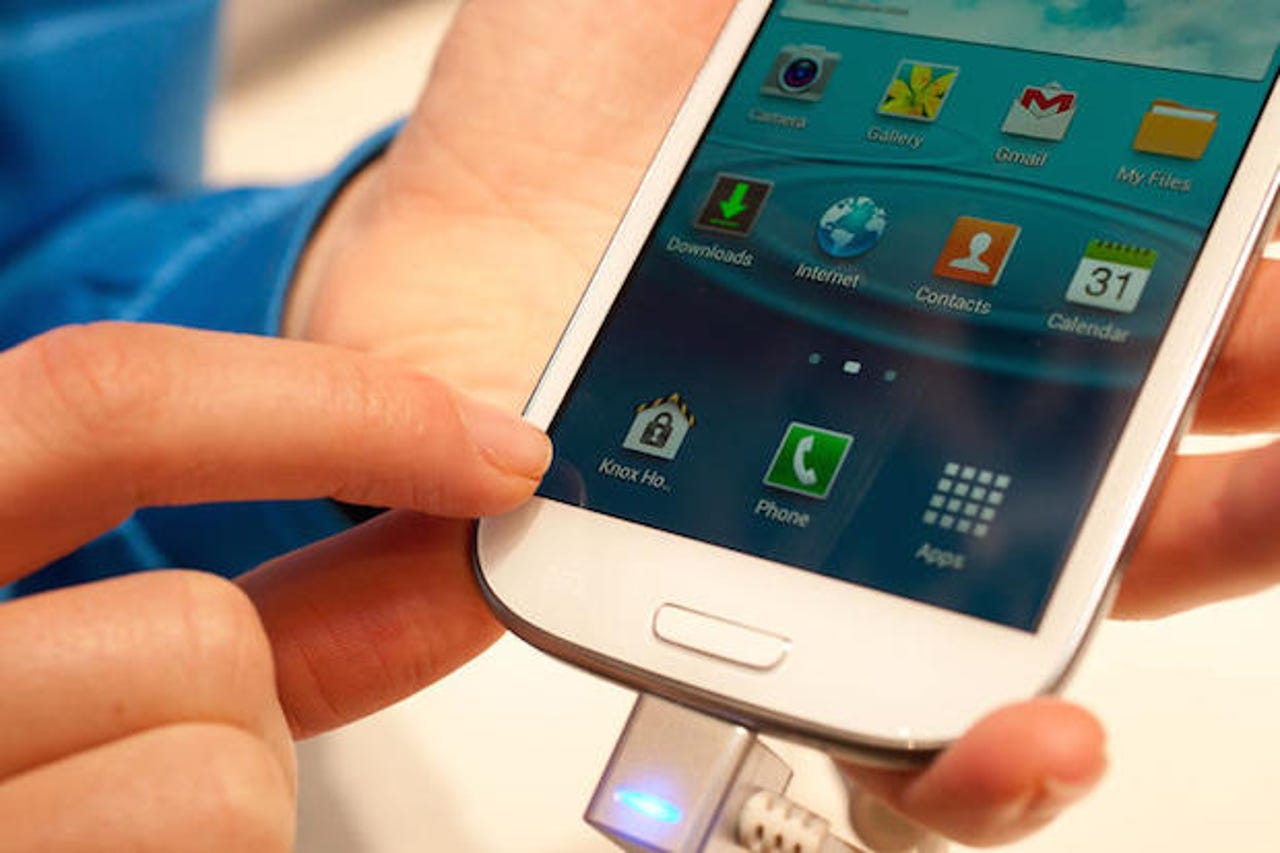Samsung fires shots at Apple-IBM with across-the-board enterprise device support

NEW YORK — Windows laptops, Android smartphones, iPhones, iPads and even printers and wearables for good measure. Samsung is gunning to provide support for them all.
On Tuesday, the Korean electronics giant announced Samsung 360 Services for enterprise clients, by supporting, managing, and connecting enterprise devices together as it aims to become the central port of call for businesses.
Sound familiar? Because you already heard it once before when Apple and IBM partnered. Same song, different tune.
While the Apple-IBM deal was focused entirely on enterprises running iPhones and iPads, Samsung aims to take enterprise support one-step further. The company says it wants to support every device in your business, regardless of device manufacturer, operating system, platform, or device.
The electronics giant is aiming to solve key pain points in which enterprises, with hundreds if not thousands of various devices from across platforms and operating systems, can reach out and have a one-stop helpdesk for device management, security, and service.
Officially know as Samsung 360 Services, it will initially support mobility, and then cover nearly every device in the modern enterprise.
Of course, there will be perks for Samsung device owners, too.
Here's the rundown:
- Technical support: Samsung will provide health checks, enterprise mobility management (EMM), and a spate of support options — either 12/5 or 24/7, including remote access support. Samsung's enterprise security suite, Knox, is also supported for Galaxy smartphones and tablets.
- Application, security, and deployment support: Includes enterprise application developer training, security reviews, and mobile policy assessments. Samsung will also keep on top of maintenance of EMM platforms, keeping much of its mobile management out of the enterprise's hands.
- Samsung MobileCare: Its own in-house device support, repair, and warranty service for all devices under the Samsung wing.
Pricing remains unavailable at launch, with Samsung aiming to secure firm figures at a later date. The company is slated to support on a per-user basis rather than per-device, lowering the price of multi-device users across the board.
Out of this all, Apple-IBM lingers in the back of most enterprise's minds. The two companies came together, setting aside decades of rivalry, to bring custom enterprise applications and dedicated app and device support to iPhone and iPad users.
Featured
There are certainly similarities to be drawn. On the face of it, Samsung's offering sounds like a near perfect carbon-copy of the deal announced just three months ago. And to a significant extent, you might be right. Samsung's "open ecosystem" pledge runs further.
While Apple-IBM wants to couple up, allowing Apple to take care of the device side of things while IBM accounts for the business and enterprise app support, Samsung wants to take things entirely in-house. The Korean giant says it has the firepower to determine the best course of action based on each customer's unique requirements, in order to tailor the best solutions possible.
In creating a one-stop shop, the company aims cuts out the middlemen between the various technology providers, software vendors, and hardware manufacturers. Who wants to deal with Microsoft for Windows support, Google for Android support, and Lenovo and other hardware makers for device support? It can get messy — quickly.
To what extent it can drive enterprise support? The proof will be in the pudding.
Like with Apple-IBM, we will be seeing more of the goods in early 2015 when the service and support begins to widen. Currently, Samsung is piloting its enterprise solutions with a number of Fortune 1000 companies ahead of its launch in the calendar first quarter.
The trouble boils down to which enterprise partner it wants to go with.
For an enterprise partner primarily dealing with custom apps based on Apple's mobile ecosystem of iPhones and iPads, the Apple-IBM deal makes a little more sense. Most of these customers are ahead of the curve, or supporting bring-your-own-device (BYOD) users in their enterprise.
But for the more traditional enterprise, with more diverse range of devices across the board, Samsung may well be more suited as a central port-of-call for its customers.
There's a lot left to be seen. For now? Let the games begin.
